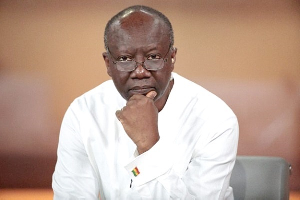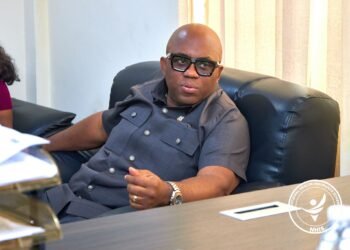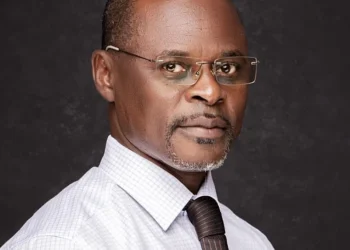The ongoing saga surrounding Ken Ofori-Atta and the Office of the Special Prosecutor (OSP) has drawn intense public scrutiny, with legal experts now urging the former Finance Minister to make himself available for investigations.
At the center of the issue is growing suspicion that Ofori-Atta is attempting to sidestep legal processes initiated by the OSP, a situation which legal practitioner Musah Ahmed believes is eroding public confidence in the principle of equality before the law.
Speaking candidly on the matter, Ahmed stated that the public’s perception that Ofori-Atta is evading investigation is not without basis.
According to him, the delay in responding to the OSP’s invitation, under the guise of seeking medical consultation abroad, raises critical legal and moral questions.
“If Ken Ofori-Atta is in the hospital, then we need to know whether his condition is an emergency. This business of telling us he is not well, he is seeking medical advice, and consultation is neither here nor there.
“In my opinion, he should appear because the Constitution of Ghana frowns upon discrimination. You see, we do not have two sets of laws for the rich, the powerful, and the poor. The law is one. The law is supreme. That is what we mean when we say the rule of law.”
Musah Ahmed
In Ahmed’s view, if the former minister is indeed unwell, it must be supported by credible and properly certified medical documentation.
He raised concerns about the document presented so far, noting that the so-called medical report comes from a person not registered as a medical officer under Ghanaian law.
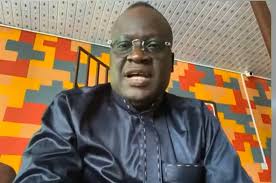
More importantly, the document lacks the mandatory certification from either the foreign ministry of the issuing country or a recognized diplomatic mission in Ghana.
“This is not merely a procedural issue. Our laws require foreign documents used as evidence to be certified. The report submitted to the OSP appears not to have met this requirement.”
Musah Ahmed
He stressed that the lack of proper certification renders the document legally questionable and gives further credence to the idea that Ofori-Atta is evading scrutiny.
Investigation Procedures, Authority’s Decision, Not Suspect’s
At the heart of Ahmed’s argument is a constitutional principle: all Ghanaians are equal before the law.
Referencing Chapter 5 of the 1992 Constitution, he noted that while Ofori-Atta has the right to defend himself and is presumed innocent until proven guilty, this does not mean he can dictate the terms of an investigation.
The investigative process, Ahmed emphasized, is not the trial itself—it is merely a stage at which the accused is invited to respond to allegations and assist in evidence-gathering.

“When it comes to investigation, nobody is saying you are guilty of the offense. What they are saying is that at that stage, they are gathering evidence, they are asking you questions, they are giving you the right to come and answer to the allegations that have been leveled against you.”
Musah Ahmed
Some have suggested that Ofori-Atta could participate in the probe virtually. However, Ahmed cautioned that the accused does not possess the legal mandate to determine how an investigation is conducted.
While Ghana’s Electronic Transactions Act (Act 772) allows for digital communications in legal matters, Ahmed stressed that the use of videoconferencing or similar technologies must be initiated or approved by the investigating authority, not the suspect.
OSP Urged to Wait on Court Ruling on Ofori-Atta
In a show of balance, Musah Ahmed also advised the OSP to be cautious in its next steps. He revealed that Ofori-Atta may have filed an application at the Human Rights Court under Article 33 of the Constitution, seeking to defend his rights.
In such a scenario, he believes the OSP should hold off on any further investigative actions until the court delivers its ruling.
“No one should take any action that appears to undermine the authority of the court.” That said, he reiterated that if the application is dismissed or concluded, the OSP has every right to resume investigations and pursue the matter in accordance with the law.
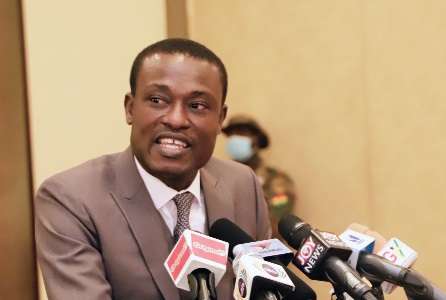
Ahmed concluded by pointing out the range of legal instruments available to the OSP if resistance continues.
He highlighted that the OSP can rely on the Ghana Police Service, particularly its Interpol Division, to facilitate extradition if necessary.
“The Attorney General is also there. The Attorney General is empowered, through the Ministry of Foreign Affairs or through the Government of Ghana, to be able to take appropriate legal steps to ensure that the law is complied with.”
Musah Ahmed
For now, however, public interest remains focused on one question: will Ken Ofori-Atta return to Ghana and face the OSP’s investigation?
With each passing day, the calls for accountability grow louder, echoing the constitutional ideal that the rule of law must apply to all citizens—regardless of rank or privilege.
READ ALSO: Daniel Etim-Effiong Recalls Dating Multiple Women

